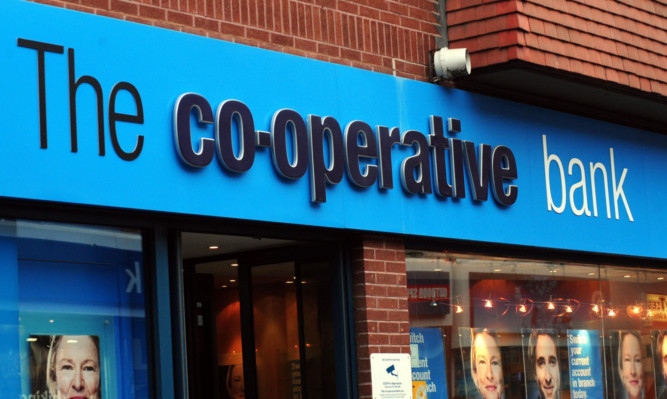The rescue of the Co-operative Bank will see thousands of small investors help to fill a £1.5 billion hole in its balance sheet.
No taxpayers’ money will be involved in the plan, with bondholders forced to take “painful” losses on their investment as part of a “bail-in” due to happen in October.
They will be offered shares in the banking arm, which will result in a stock market listing for the UK’s biggest mutual.
The Co-op said about 5% of the bondholders were smaller retail investors, a figure thought to number about 7,000, and whose average investment was around £1,000.
The black hole in the Co-op’s capital reserves largely stems from commercial property loans acquired through a merger with the Britannia building society in 2009 which created a financial “super-mutual”.
Concerns over its financial position came to a head last month after credit ratings agency Moody’s downgraded the bank to junk status, just weeks after it had pulled out of a deal to buy more than 600 Lloyds branches.
As a member-owned institution, the Co-op is hamstrung in its ability to raise fresh capital.
The Co-op, which has around 4.7 million banking customers, is also planning to raise funds through the disposal of its insurance business, although the largest part of the rescue is coming from bondholders.
The shortfall was identified by the Prudential Regulation Authority, the new City watchdog.
It is due to set out further details on the capital positions of all eight major banks and building societies in a briefing on Thursday.
Co-op chief executive Euan Sutherland, the former B&Q boss who joined the group last month, said the long-term plan was to now focus on retail customers.
“I think we are really strengthening the group right now and we have put in, in a very short time, a very strong management team and we have got a very clear plan to drive a very successful future for this bank going forward,” he said.
“Clearly there are lessons to learn and clearly there will be a time to look back and do that but, to be honest, in the last six weeks, where I have been involved with the Co-operative group, we have focused on driving a very solid future for this bank,” he added.
“In effect this is the best solution for all concerned. It’s a very equitable solution and we believe that this will provide security, safety, stability for our customers and the bank going forward.”
At least £1 billion will be generated this year from the exchange offer, with the remaining £500 million to be contributed during next year.
The rescue has allayed fears that the Co-op may have been forced to sell some of its prized assets, such as its pharmacy business.
Shore Capital analyst Gary Greenwood said: “Overall, this represents a painful outcome for junior bondholders, but allows for the ongoing survival of the bank, albeit this may be in a somewhat more constrained format than its previous guise.”
Founded in 1863, the Co-op group has more than six million members and employs more than 100,000 people.
